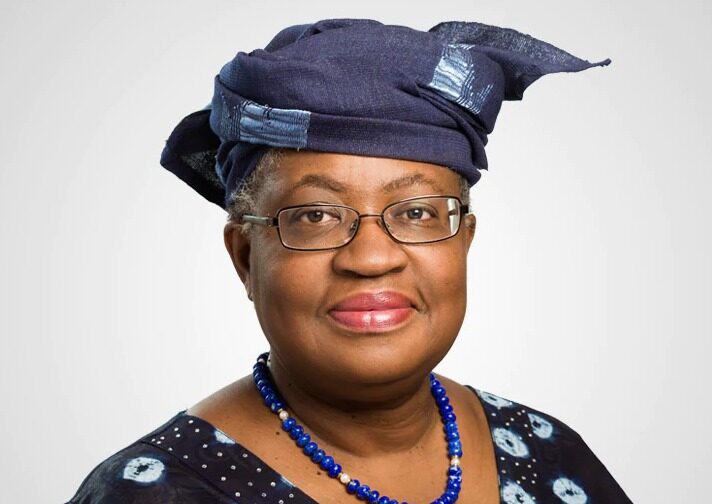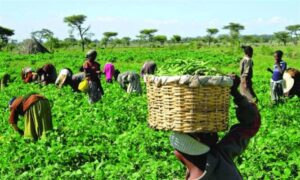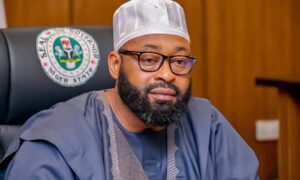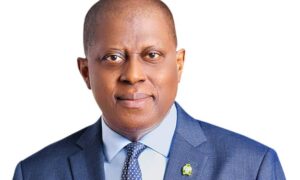BY CHIJIOKE OKORONKWO
Globally, during disruptive economic reforms, social safety nets provide an important buffer and help ease the short-term adverse impacts of such restructuring on vulnerable people.
In deconstructing President Bola Tinubu’s economic reforms, scholars, economic experts and stakeholders have offered insightful advice on assuaging the negative impact of the reforms.
While some Federal Government’s palliative measures are already underway, Ngozi Okonjo-Iweala, the Director-General of World Trade Organisation (WTO), recently amplified the call for social safety nets.
Recall, upon inception in 2023, the Tinubu administration unveiled a two-pronged fiscal approach; removal of petrol subsidy and floating of the naira through the willing buyer/willing seller model.
The policies triggered cost of living crisis in the short term even as experts say the long-term prospects are soothing with microeconomic stability on the fringes.
The policies pushed prices as headline inflation rose to 33.88 per cent in October 2024, according to National Bureau of Statistics (NBS).
Nonetheless, NBS latest report indicates that the trend is beginning to look sunnier as Nigeria’s headline inflation rate eased further to 21.88 per cent in July, a decrease of 0.34 percentage points from 22.22 per cent in June.
The NBS data indicates fourth consecutive monthly decline in the inflation rate this year.
More so, World Bank recently acknowledged that Nigeria’s economy was stabilising under Tinubu’s administration, with projected growth of 3.6 per cent in 2025.
Worthy of mention, in 2023, to provide an immediate cushion to removal of petrol subsidy, the Federal Government began a nationwide distribution of rice, grains, fertiliser, among others to states and N5 billion financial supports to each state.
Okonjo-Iweala, who spoke recently after conferring with the president, said that Tinubu deserved credit for stabilising Nigeria’s economy through bold reforms.
She said that government’s effort to steady the economy was a pivotal step in building long-term growth.
“The president and his team have worked hard to stabilise the economy and you cannot really improve an economy unless it is stable.
“He has to be given the credit for the stability of the economy, so the reforms have been in the right direction.”
According to Okonjo-Iweala, stabilising the economy is only the beginning of a broader recovery agenda.
The WTO D-G said that more work was needed to stimulate inclusive growth and alleviate poverty in the country.
“What is needed next is growth; we now need to grow the economy and we need to put in social safety nets so that the people who are feeling the pinch of the reforms can also have some support to be able to weather the hardship.
“That is the next step; how do we build social safety nets to help Nigerians cushion the hardship they are feeling and how do we grow the economy so we can create more jobs and put money in people’s pockets?
“These are issues we discussed with the President,” she said. She said there was need for policies that directly impacted the lives of Nigerians and created economic opportunities.
Okonjo-Iweala assured of the WTO’s continued support for Nigeria’s economic revival.
Also, in recognition of the imperative of safety nets, the Federal Government, had, in January, approved the sum of N32.7 billion for the implementation of the National Social Investment Programme (NSIP).
Espousing the programme, Prof. Nentawe Yilwata, the Minister of Humanitarian Affairs and Poverty Alleviation, said the approval was in line with the president’s Renewed Hope Agenda aimed at prioritising the most vulnerable groups in the country.
He said the funds would be used to support vulnerable groups in the country with non-collateral and non-interest loans.
The minister said vulnerable groups, especially youths and women, would benefit from the loans.
Yilwata said that the funds would be given through cooperatives and urged Nigerians to form cooperatives to benefit from the scheme.
“We will give you between N300,000 and N400,000 as household loans; so, if you have a cooperative of 20 people, for example, then it means you have N300,000 multiplied by 20, that is N6 million.
“We also have the N-Power, which the president has asked us to redirect; we should reform it and make them more productive.
“We should link the youth, not just by training them alone, but we should link them to the market space and the private sector.
“To ensure that is done, the president has procured over 100,000 items that can empower over 100,000 youths across the country,” he said.
More so, Yilwata said the administration had started the implementation of the conditional cash transfer.
He said 70 million Nigerians would benefit from the scheme, adding that at least 15 million households were expected to benefit from it.
“Four to five persons from the 15 million households would benefit from the N75, 000 cash transfer that would be disbursed in three instalments,” he said.
What’s more, The Nigerian Guild of Editors (NGE) has also underlined the need for social safety nets.
The guild expressed worries over the state of the economy, insecurity, failing education system, poor governance, and a struggling media industry.
The NGE said that in spite of the Federal Government’s reforms to address the challenges, their impacts were becoming unbearable for the poor masses.
The guild urged the Federal Government to put in place more safety nets to address hardship, inflation, and poverty.
Weighing in on the imperative on social safety net vis a vis economic reforms, an Economic Expert, Dr Chijioke Ekechukwu, said he did not subscribe to the distribution of cash as a form of palliative.
He said that a critical part of palliative should be the distribution of seeds and seedlings to farmers.
“There could also be distribution of tools to artisans after training them on various skills.
“Yes, I believe we can have productive safety nets; firstly, every state government must take responsibility in ensuring they end hunger in their states.
“They should increase agricultural production through Green House Farms.
“Every state can own this and contribute to the food security of the country.’’
Ekechukwu, the Chief Executive Officer, Dignity Finance and Investment Ltd, said the Federal Government should identify major areas that create the financial burdens of Nigerians and make them free.
“Free Medicare, free education up to secondary school level; railroads linking cities and offering cheaper rates to the passengers, free bus rides within the towns.
“These are things that are possible for both federal and sub national governments,’’ he said.
All in all, experts say the reforms are geared towards tackling persistent challenges and stimulating economic growth.
They add that effective implementation of social safety programmes will cushion inflation and redress the dwindling purchasing power of average Nigerians.















